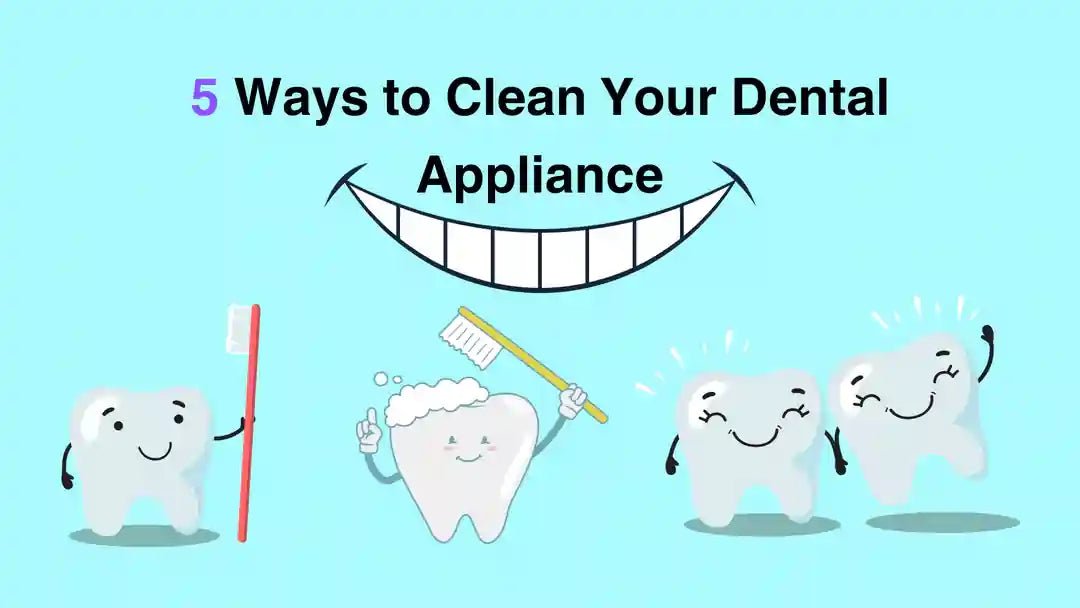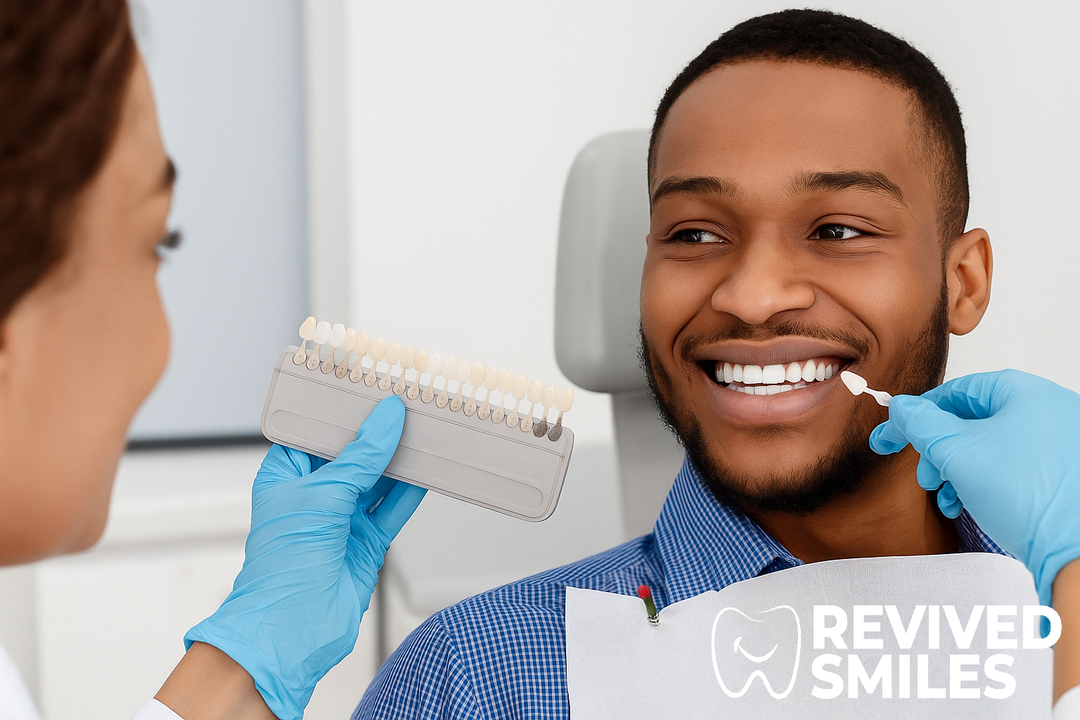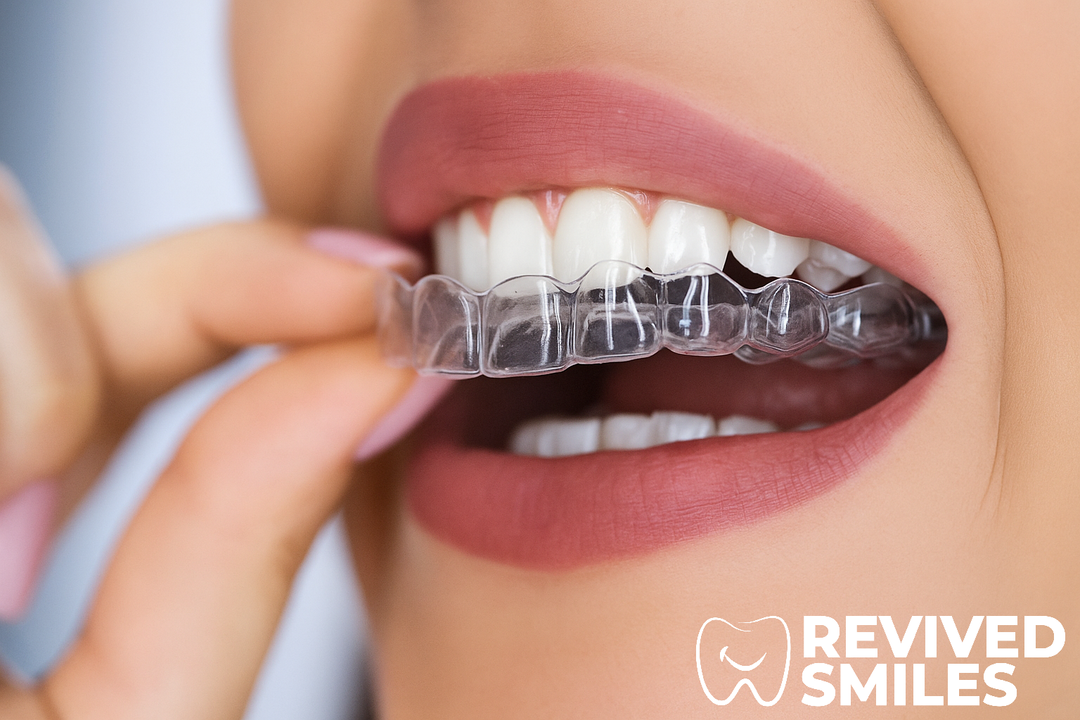5 Proven Ways To Properly Clean Your Dental Appliance and Prevent Erosion

Do you wear a dental appliance like dentures, a retainer, or a mouthguard? Keeping these appliances clean is crucial for your oral health and the longevity of the device. Proper cleaning not only ensures a fresh and comfortable fit but also prevents erosion and other forms of damage that can shorten the lifespan of your appliance. In this guide, we’ll share five proven ways to properly clean your dental appliance and keep it in top condition.
1. Brush Your Dental Appliance Daily
Just like your natural teeth, your dental appliance needs daily brushing to remove food particles, plaque, and bacteria. Here’s how to do it effectively:
- Use a Soft-Bristled Brush: Choose a toothbrush with soft bristles to avoid scratching or damaging the surface of your appliance. Some dental appliances come with their own specialized brushes.
- Non-Abrasive Cleaners: Use a non-abrasive denture cleaner or mild dish soap. Avoid using regular toothpaste, as it can be too abrasive and lead to erosion.
- Gentle Scrubbing: Gently scrub all surfaces of the appliance, paying special attention to areas that come into contact with your gums and teeth. Rinse thoroughly with lukewarm water.
Pro Tip: For appliances like retainers or clear aligners, consider using a brush specifically designed for orthodontic devices to ensure you reach all the crevices.
2. Soak Your Appliance in a Cleaning Solution
Soaking your dental appliance in a specialized cleaning solution helps to disinfect it and remove any stubborn deposits that brushing alone may not eliminate. Here's how to do it:
- Choose the Right Solution: Use a cleaning solution specifically designed for dental appliances. Over-the-counter denture soaks are a popular option. Avoid using hot water, as it can warp the appliance.
- Follow Manufacturer Instructions: Follow the instructions on the cleaning solution for the correct soaking time. Typically, soaking for 10-15 minutes is sufficient, but some appliances may benefit from an overnight soak.
- Rinse Thoroughly: After soaking, rinse the appliance thoroughly with lukewarm water to remove any residual cleaning solution.
Pro Tip: Avoid using household cleaners like bleach or vinegar, as they can cause discoloration and damage to the appliance.
3. Avoid Using Hot Water
Hot water can cause significant damage to dental appliances, especially those made from plastic or flexible materials. It’s crucial to use lukewarm or cool water when cleaning or rinsing your appliance:
- Why Hot Water is Harmful: Hot water can cause warping or distortion, particularly in appliances like flexible partial dentures or clear aligners. This can affect the fit and function of the device.
- Temperature Control: Always test the water temperature before using it on your appliance. If it’s too hot for your hand, it’s too hot for your dental device.
Pro Tip: Store your appliance in a safe, cool place when not in use to protect it from temperature fluctuations.
4. Regularly Inspect Your Appliance for Wear and Tear
Regular inspection of your dental appliance can help you catch signs of wear and tear early, preventing more severe damage or the need for costly replacements:
- Check for Cracks or Chips: Examine your appliance for any cracks, chips, or rough spots that could lead to discomfort or further damage.
- Monitor for Discoloration: Discoloration can indicate a buildup of plaque or food particles. Regular cleaning should prevent this, but if discoloration persists, consult your dentist.
- Look for Changes in Fit: If your appliance feels loose, uncomfortable, or different from its usual fit, it may need adjustment or replacement.
Pro Tip: Schedule regular check-ups with your dentist to ensure your appliance is in good condition and still fits properly.
5. Store Your Appliance Properly When Not in Use
Proper storage of your dental appliance when not in use is crucial for maintaining its shape and cleanliness:
- Use a Protective Case: Store your appliance in a clean, dry case designed for dental devices. This protects it from damage and keeps it free from dust and bacteria.
- Keep It Moist: Some dental appliances, like dentures, should be kept moist when not in use to prevent them from drying out and losing their shape. Follow the care instructions provided with your appliance.
- Avoid Extreme Temperatures: Store your appliance in a temperature-controlled environment, avoiding exposure to direct sunlight, heat, or cold.
Pro Tip: Label your storage case with your name or a distinctive mark to avoid mix-ups, especially in shared living spaces.
Conclusion: Choose Revived Smiles for High-Quality Partial Dentures
Proper care and maintenance of your dental appliances are essential for preventing erosion and extending their lifespan. By following these five proven methods, you can keep your dentures, retainers, and other appliances clean, comfortable, and functional for years to come.
If you’re in need of partial dentures or other dental solutions, Revived Smiles is here to help. We specialize in providing high-quality partial dentures tailored to your specific needs. Our expert team is dedicated to helping you achieve a healthy, beautiful smile that you can maintain with confidence.
Visit Revived Smiles today to explore our range of partial denture options and take the first step toward restoring your smile.





Leave a comment